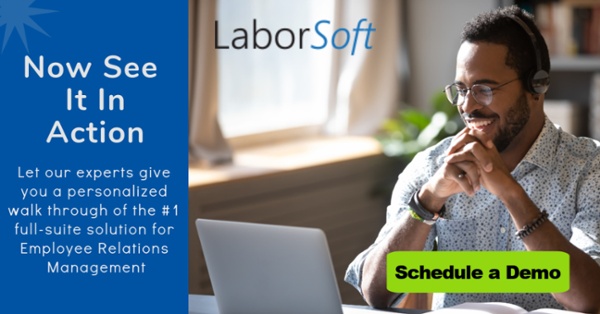Labor Relations | Compliance & Legal | Employee Relations | Government
How Labor Relations & the Federal Labor Relations Authority Intersect
Read Time 3 mins | Mar 11, 2024 | Written by: Frankie Kourtis

Maintaining positive labor relations is just as important for a private employer as it is for a federal agency. Both private and federal employees have rights that must be protected and may file disputes or grievances in cases where unfair labor practices have violated those rights.
The Federal Labor Relations Authority (FLRA) is an independent government organization that administers the labor-management relations program for millions of federal employees. HR professionals who work for federal employers will need to understand how the FLRA intersects with their labor relations responsibilities and their relationships with federal employees.
What is Labor Relations in HR?
Labor relations fits within the broader umbrella of human resources, but it’s a unique sub-function of HR. Labor relations management is all about ensuring a productive relationship between unions and employees via clear communication, resolution of labor grievances/disputes, and compliance with collective bargaining agreements.
HR teams and labor relations specialists work together to protect private organizations when collective bargaining and grievances come into play. Effective labor relations helps to ensure that workers feel supported and fairly treated, preserving the flexibility of the organization and potentially heading off any labor relations cases or issues with unions before they begin.
However, maintaining positive labor relations is also an important aspect of HR’s duties within federal organizations. Whether a private employer is seeking to resolve a dispute with a union or a federal employer is responding to a complaint with the Federal Labor Relations Authority, proper management of labor relations will be critical to a positive outcome.
What is the Federal Labor Relations Authority (FLRA)?
The FLRA is one of several federal agencies — alongside the Office of Labor-Management Standards, National Labor Relations Board, National Mediation Board, and Federal Mediation and Conciliation Service — that provides services in labor relations. As an independent administrative agency, the Federal Labor Relations Authority operates with some degree of autonomy from the executive branch.
The FLRA “provides leadership in establishing policies and guidance related to federal-sector labor management issues.” For instance, the agency can assist in the resolution of labor law cases at federal organizations as well as their compliance with relevant legal requirements and statutes. Specifically, the FLRA oversees relations between non-postal federal agencies and their 2.1 million employees.
What to Expect When a Case Is Filed With the FLRA
The FLRA handles labor-management issues for non-postal, federal civilian employees. Many, but not all, of these will be filings for Unfair Labor Practices (ULPs). Here’s a quick overview of typical procedures for such a case:
- When a Regional Director issues an unfair-labor-practice complaint, the Respondent organization will first file an answer to the complaint. The parties may then voluntarily participate in alternative dispute resolution using the Settlement Judge Program, but if this fails, each party will next need to attend a hearing.
- A judge will meet with both parties at least a week before the hearing for a pre-hearing conference, in which everyone involved will attempt to discuss, narrow, and resolve any outstanding motions, stipulations of fact, or subpoena requests.
- Any party can move for summary judgment (if there is no issue of material fact), allowing the judge to decide all issues with no hearing as a matter of law.
- If the hearing goes forward, the judge will hear the examination and cross-examination of witnesses and allow all parties to introduce evidence regarding the allegations in the complaint.
- After the hearing, the judge will issue a recommended decision and transmit it to the Federal Labor Relations Authority.
- The FLRA will issue a decision affirming or reversing the judge’s decision. Unless a party appeals, this decision becomes final and binding.
For more detailed information, refer to the FLRA’s guide to the procedures regarding unfair labor practice cases.
How to Stay Compliant and Ensure Positive Labor Relations
Labor laws and federal agencies like the Federal Labor Relations Authority may, on the surface, feel like restrictive red tape. However, they exist to help all parties work together and protect the rights of every employee and organization.
HR professionals also recognize that labor relations management is often cumbersome and complex, which can make it difficult to keep cases organized and on track. The right supporting tools can keep the moving parts aligned with access to timely procedural reminders, compliance information for relevant labor laws, and a central repository for all relevant documents.
LaborSoft provides a comprehensive labor relations case management software solution with all of these conveniences and more. Empower your HR leaders and labor relations managers to more efficiently and effectively manage labor relations law cases and materials with a purpose-built platform for case management. Schedule a demo today and see the difference for yourself.


